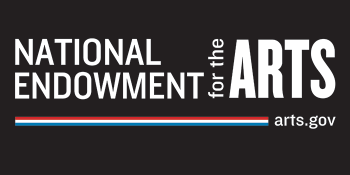Winter holidays bring out good feelings of cheer and charity. But what if giving to charity is actually not as beneficial as we think?
Wayne Squires, head of Partners in Neighborhood Transformation, believes that holiday charity does not do all it promises to do. Rather, he believes holiday charity works as a rescue option, giving people things they already have or can get on their own.
“Bob Laughton said, ‘Whenever we do something for another human being that they can do themselves, we do damage to ourselves and them,’” Squires starts. “We don’t honor their gifts and abilities when we give to folks that we don’t even know, or give to organizations without knowledge of what the organization is doing.”
As a leader of a nonprofit organization, Squires has seen growing divisions in Grand Rapids and holiday giving does not get at this problem.
“There is such a disconnect in Grand Rapids. There are a few indicators that the social health of Grand Rapids—access to healthcare, access to wealth—that haven’t changed in years. The service we do is very event-related or seasonal-related.”
Squires uses the axiom of “give a man a fish, teach a man to fish” as a way to understand why these charities are not helping. Squires believes that most charities stay at the “give a fish” or “teach a fish” levels, but rarely do they go beyond that to continue supporting those struggling to get out of poverty.
To solve this problem, Squires suggests a lifestyle change that he says is more difficult but much better than charity. He thinks that relationships are key to helping people climb out of poverty rather than the constant rescuing that often happens with charity.
“We address people as ‘needs to be met’ or ‘resources to be filled,” he explains. “Holiday giving can reinforce labels of the poor instead of empowering them.”
“When we come into ‘season of giving’ we should focus on building relationships rather than [giving] financial gifts,” he continues. “I encourage people to have personal involvement, whether serving on a [school] board or just getting to know someone and give them your time, gifts and develop new relationships.”
Squires also recommends looking more locally to help out.
“People need to stop where they are and step back and see what’s in front of them,” he says. “Think of who’s in your neighborhood or who’s on the margins of your church, and begin a relational journey that may have challenges but where you will learn so much.”
Holiday charity is a one-time event, but in order to give people what they really need, Squires believes that we must go beyond just financial giving.
“We don’t need to be best buddies with everybody, but it’s really good for us to match our financial gifts with time and some level of integration that goes beyond a seasonal feeling,” he says.
It sounds difficult, and Squires admits that it is, but he also believes that people involved will bring pleasant surprises.
“Come into those relationships with an open mind, and see not only what you can give but what you can receive,” he says.
Squires is a church and community development coach. He has worked with Partners in Neighborhood Transformation for eight years. The organization helps leaders and organizations interact with their communities.
The Rapidian, a program of the 501(c)3 nonprofit Community Media Center, relies on the community’s support to help cover the cost of training reporters and publishing content.
We need your help.
If each of our readers and content creators who values this community platform help support its creation and maintenance, The Rapidian can continue to educate and facilitate a conversation around issues for years to come.
Please support The Rapidian and make a contribution today.

